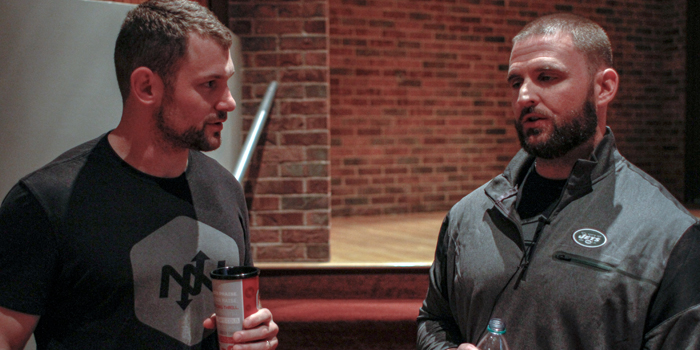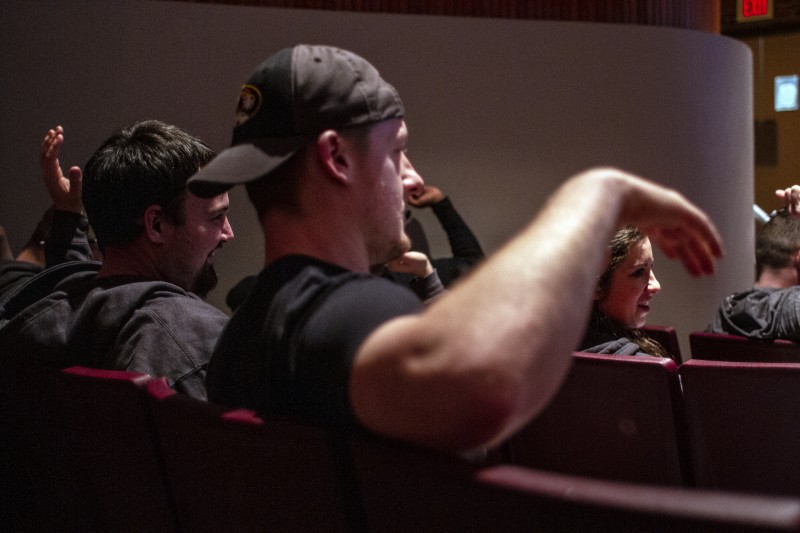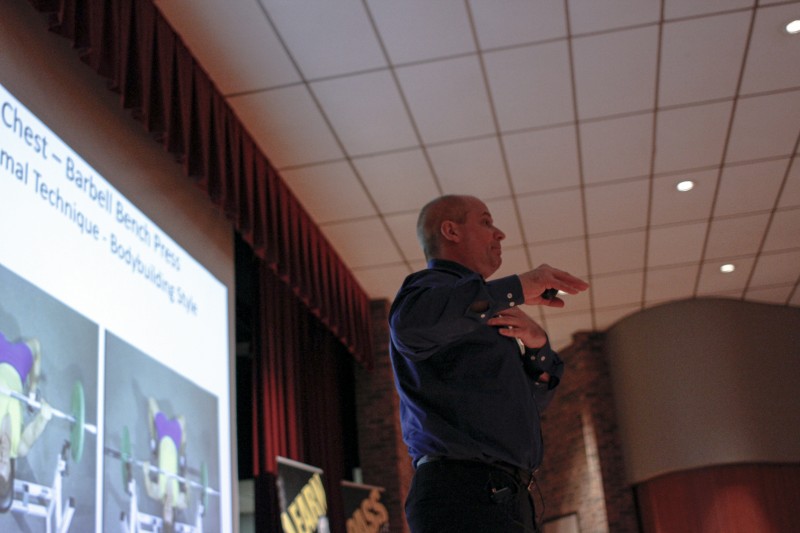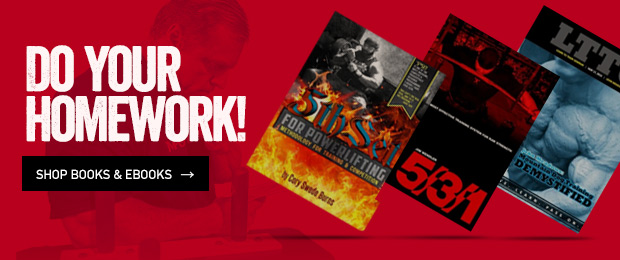
For four years, I worked as a high school teacher in Australia. It was a rewarding job that I really enjoyed. Building rapport with students and parents, finding ways to overcome challenges, making an impact of young people's lives, watching them grow and mature were all of the things I loved about the job. Despite this, it wasn’t enough. I always felt that something was missing and that I couldn’t commit myself to teaching as a long-term career.
I finally accepted that my enjoyment and passion for strength and conditioning was more than just a hobby, but like many others, I opted against it because I didn’t think I could make a successful career out of it. The strength and conditioning industry is unique in the fact that there isn’t a set pathway to follow for career advancement. It’s hard to find specific strength and conditioning roles, and a lot of the time supply outweighs demand, particularly in Australia.
RELATED: The Education Disconnect
In this article, I am going to outline what I believe have been the biggest contributing factors in the beginning and progressing my strength and conditioning career so far and give my personal experience with each factor. This is a unique perspective as it is written by someone that is in the early stages of their career rather than an experienced coach looking back on their time as an up-and-coming coach.
My hope is that this article will help new coaches or aspiring coaches with their transition into strength and conditioning by highlighting some barriers and providing a personal example of how those barriers can be overcome.
Commit to the decision
First and foremost, if you want to make it in the strength and conditioning industry, you need to fully commit to the idea. You will not become a successful strength coach by taking a half-hearted approach. Becoming a successful coach requires hard work, dedication, sacrifice, and passion. Without these qualities, you are likely to be chewed up and spit out by the unforgiving nature of the industry.
When I made the decision to pursue a career in strength and conditioning, I fully committed and was willing to do whatever was necessary to make it work (within reason). I essentially uprooted my life in pursuit of being a strength coach. I quit my job (which I was good at) and moved to a new country, away from my family, friends, pets, newly purchased house, etc. It was a huge decision and took a lot of work, but I was committed and found ways to make it happen.

For the first four months of living in a new country, I completed an internship without being paid. I would spend most of my time in the gym coaching. This meant living on a budget — no traveling or experiencing the new country — but again, I was committed and willing to do it.
I now drive 40km (24.9 miles) to get to work. That’s 80km (49.7 miles) every day, but the experience and mentoring I get are worth the hassle of driving. Essentially, you must be willing to sacrifice some things in order to make a start, and the only way that is possible is by being 100 percent committed to the cause.
Get educated
This one is a double-edged sword for me. Obviously education is very important for becoming a great coach, but it’s also important to be in the field gaining real-world experience. It’s almost required that you have a bachelor’s degree in exercise and sports science, kinesiology, or some other related degree, but that doesn’t mean you can’t be a coach whilst you are completing it.
Finding an entry-level job will be difficult if you don’t have any formal education but will also be difficult if you have zero real-world experience. Having a combination of both is going to set you apart from others and increase your chances of landing that entry-level job.
Be prepared to move
Geographical location can have a huge impact on your ability to become a successful strength and conditioning coach. It’s just a fact that not all parts of the world are equal in terms of strength and conditioning. This was particularly true for me.
READ: Are You Ready for the Inevitable?
Australia’s strength and conditioning industry is still developing in terms of exposure, job market, and demand of service. Don’t get me wrong, there are plenty of high-quality strength coaches in Australia but don’t have the market to support them. This means less opportunity of internships, difficulty finding a mentor to work with and difficulty finding an entry position as an up-and-coming strength and conditioning coach.
Knowing all of this, I made the decision to move to Canada where those opportunities are a lot greater. Since living in Canada, I have completed a strength and conditioning internship, collaborated with quality coaches, and I now work at a well-respected fitness facility — all things that are contributing to my development as a coach.
Put yourself in a place where you can have access to things like internships, experiences, coaches, and job opportunities and be willing to move away to do so.
Complete an internship
This is an absolute must in my opinion and is something I never pictured myself doing initially. I was very fortunate to be accepted into a summer internship at Brock University in Ontario, Canada. During this time, I got to attend weekly lectures based on different aspects of athletic performance, work with varsity athletes and teams, and collaborate with high-level coaches.
This internship really set the tone for me about what it will take to become a successful coach. It highlighted some of my strengths and some of my weaknesses, and it also highlighted areas that I had never considered before. It gave me a clear picture of what I needed to do personally to better myself as a coach.
Having that type of roadmap is invaluable. The amount of education and experience you gain during a quality internship is something you cannot experience anywhere else.

Find mentors
In every other profession, it is normal to spend time with experienced colleagues and learn from them; strength and conditioning should be no different. In my first year as a teacher, I was assigned a mentor to help me navigate my new role. It was then that I realized the importance of having a quality mentor.
Having a mentor allows you get constant feedback, ability to observe high-level coaching, guidance, support, build a professional network, and much more. The benefits of having a mentor are almost endless, and it is certainly in your best interest to find someone to learn from early in your career.
Be comfortable being uncomfortable
This is something that I accepted very early on and am very thankful I did so. There will be, without a doubt, many times in your journey that you are put in a position that makes you feel uncomfortable or out of your depth. You will find yourself in rooms with highly intelligent people, working with experienced coaches, in charge of a high number of athletes, working with high-level athletes, special population clients, etc.
MORE: The elitefts Internship Guide
The important thing is not seeing it as a bad thing or taking it as a negative experience. These moments are your greatest learning experiences. If you are always comfortable with what you are doing, then you are never learning.
Early in my internship, I was left in charge of running the session of one of the varsity teams as the head coach was away. It was an exciting opportunity but also left me feeling out of my depth. These were high-level varsity athletes that were used to being coached by the head of sports performance at the university. Nonetheless, I ran the session to the best of my ability.
It ended up being the most valuable two hours of the whole internship in terms of gaining confidence and understanding of what it is to be a head strength and conditioning coach.
Never be ready to stop learning
Having worked with great strength coaches over the past year, I have learnt an important lesson in continually learning and improving. Every coach that I have worked with has been striving to better themselves in some way. It’s important to understand that there are many ways in which you can continue to develop both personally and professionally, such as:
- Getting a college/university education: Bachelor’s degree, Master’s degree, Ph.D.
- Getting certified: CSCS, USAW, FMS, etc.
- Attending conferences: NSCA, ASCA, etc.
- Collaborating and networking: work with experienced coaches and take note of how they go about their business
- Reading and listening: podcasts, books, professional articles, peer-reviewed journals, etc., which all provide valuable knowledge
These are just some of the ways you can develop yourself as a coach in the early stages of your career, and truth be told, if you are truly passionate about strength and conditioning, then learning about it should be an enjoyable past time. You will rarely see a successful strength and conditioning coach that thinks he knows it all, and that’s because those people never make it to the top.
Obviously, this isn’t a definite map or “how-to” of becoming a strength and conditioning coach and is not designed to turn people into world-renowned strength coaches. Rather, it is a set of personal experiences that demonstrate my transition from teaching into strength and conditioning and provide some food for thought to people looking to transition or start their own careers in this industry. I know first-hand that it can be daunting finding your way into the industry, but if it’s something you are passionate about, then it is worth all the hard work.
I wish you all the best in your journey to becoming an established strength and conditioning coach.
Zach Schill was born and raised in Australia, where he was a high school teacher for four years while doing personal training on the side. He made the decision to leave education and has moved to Canada to pursue a career in strength and conditioning. Since being in Canada, Zach has completed a strength and conditioning internship and landed a job at a well-respected strength and conditioning facility. He looks forward to sharing his experiences in navigating the world of strength and conditioning.











and dedication. Very proud of you.